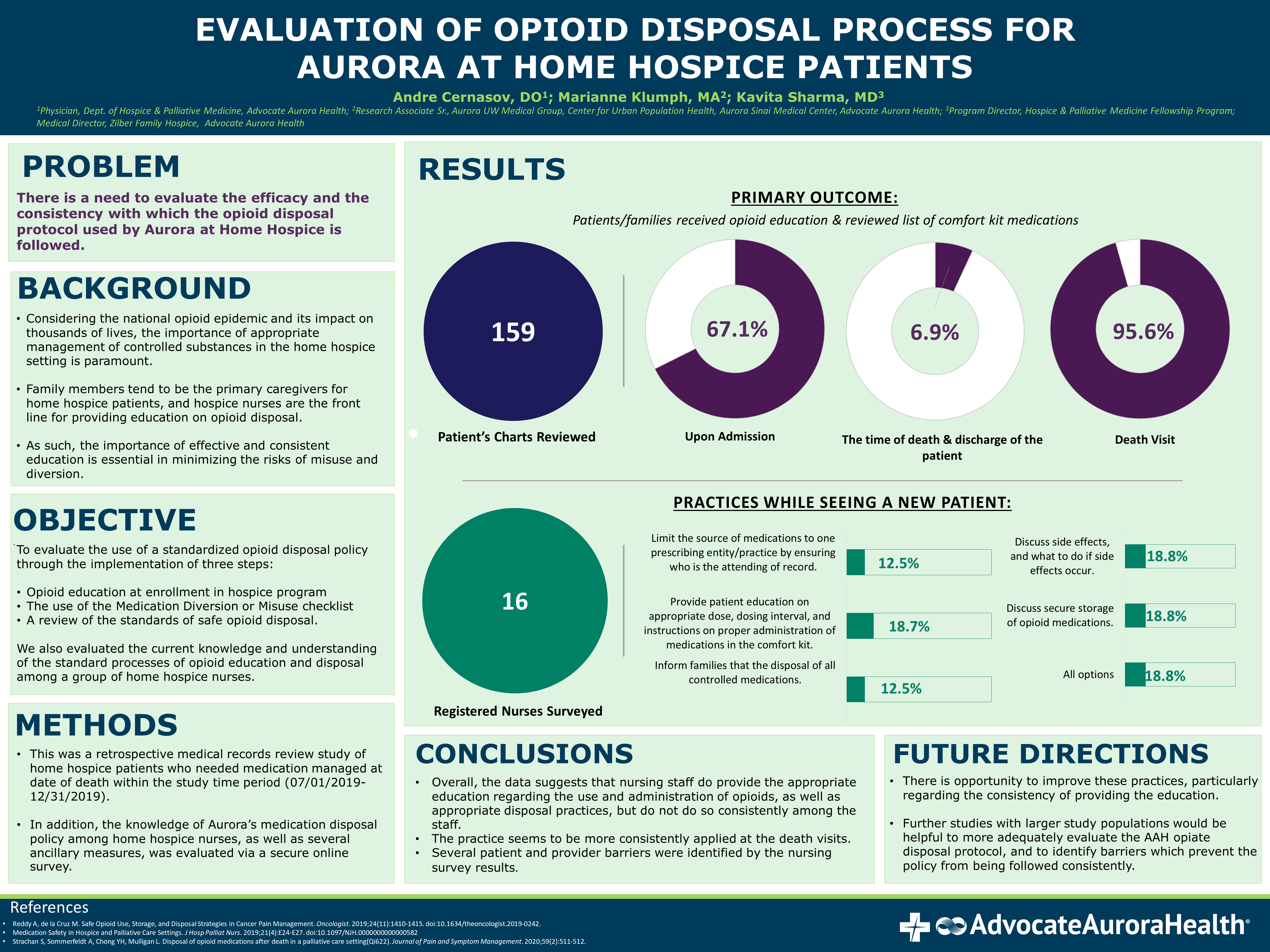PCR026: Evaluation of opioid disposal process for home hospice patients
Andre Cernasov, DO; Kavita Sharma; Marianne Klumph, MA
Abstract
Context: Considering the national opioid epidemic and its impact on thousands of lives, the importance of appropriate management of controlled substances in the home hospice setting is paramount. Family members tend to be the primary caregivers for home hospice patients, and hospice nurses are the front line for providing education on opioid disposal. As such, the importance of effective and consistent education is essential in minimizing the risks of misuse and diversion. Objectives: To evaluate the use of a standardized opioid disposal policy through the implementation of three steps: (1) opioid education at enrollment in hospice program; (2) the use of the Medication Diversion or Misuse checklist; and (3) a review of the standards for safe opioid disposal. We also evaluated the current knowledge and understanding of the standard processes of opioid education and disposal among home hospice nurses. Study Design: Mixed methods. Setting or Dataset: Retrospective data and survey data, Milwaukee, WI; 07-12/2019. Population Study: Home hospice patients, home hospice registered nurses. Outcome Measures: The fidelity of our institution's opioid medication disposal policy and knowledge of the policy. Basic descriptive statistics were used to describe the patients and survey responses. Results: A total of 160 patients met inclusion criteria. We found that 108 (67.9%) patients/families received education on admission, 11 (6.9%) families received education on opioid disposal at the time of death, and 152 (95.6%) of families had an opioid disposal discussion at the death certification visit. Of the 16 nursing survey respondents, only 3 (18.8%) consistently provided all of the necessary education to new patients. However, when education is provided, 14 (87.5%) respondents did provide all the appropriate instructions regarding dosing, administration, side effects, and storage. On death calls/visits, 13 (81.2%) reported consistently providing the appropriate education regarding opioid disposal. Conclusion: Our results suggests that nursing staff do provide the appropriate education regarding the use and administration of opioids, as well as appropriate disposal practices, but do not do so consistently. The project highlighted the importance of continued nursing education regarding safe opioid use, disposal, and awareness of drug diversions.

Jack Westfall
jwestfall@aafp.org 11/19/2021important topic. Great poster and abstract. Thanks